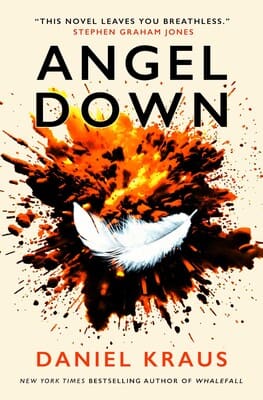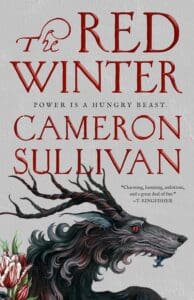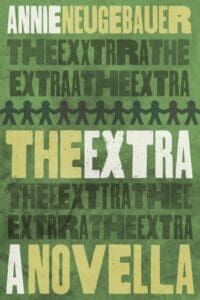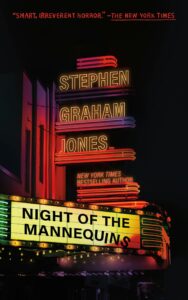
Synopsis
A stylistically bold and innovative, cinematic horror novel about greed and paranoia, set amongst the grit and mud of the trenches in WW1. Perfect for fans of Stephen Graham Jones and Alma Katsu.
From the New York Times bestselling author of Whalefall, and the co-author of The Shape of Water alongside Guillermo del Toro.
Private Cyril Bagger has managed to survive the unspeakable horrors of the Great War through his wits and deception, swindling fellow soldiers at every opportunity. But his survival instincts are put to the ultimate test when he and four other grunts are given a deadly mission: venture into the perilous No Man’s Land to euthanize a wounded comrade.
What they find amid the ruined battlefield, however, is not a man in need of mercy but a fallen angel, seemingly struck down by artillery fire. This celestial being may hold the key to ending the brutal conflict, but only if the soldiers can suppress their individual desires and work together. As jealousy, greed, and paranoia take hold, the group is torn apart by their inner demons, threatening to turn their angelic encounter into a descent into hell.
Angel Down plunges you into the heart of World War I and weaves a polyphonic tale of survival, supernatural wonder, and moral conflict.
Review
Angel Down is not the kind of book I’d normally gravitate towards. In fact, from the outside, it’s the kind of high-concept experimental narrative format that makes me shake my head and immediately think of it as just pretentious schlock, something put together by a person who thinks they are smarter than they actually are and that nobody thought to tell “maybe you should just write this in a more conventional manner” once everyone realises that the end product is all style and no substance despite the insistence of the navel gazing author that actually, no, I’ll have you know this is indeed a deep piece of work and not something so atrociously shit but oh look it’s in a second person narration so I must be cool and profound for writing it that way…
Anyway, yeah, I’m typically not a fan of obtuse or “out there” styles of storytelling, with one notable exception being Wake Up & Open Your Eyes by Clay McLeod Chapman (my full review here), which released earlier this year and has a closing third act written in a way that just WORKS! Basically, I feel like it must fit perfectly to make me like it and not just say “yeah it was good, but I do sure wish it was written normally, y’know?”
Ironically enough, this isn’t how I normally start a review. Normally I start with a joke, or something dumb, and then go onto my spiel…
So, what did I think of the latest novel from Daniel Kraus, – author of Whalefall and co-author of The Shape of Water – in which Kraus writes a story in one, breathless, unbroken sentence, in which each “paragraph” starts with the word and? A book that, whilst being a horror adjacent novel set in World War 1 and having a plot that sounded great to me, had all the odds stacked against it when it came to impressing me, or just getting me to like?
Well, let me tell you this… I really enjoyed Angel Down!
What is Angel Down even about? We follow Private Cyril Bagger, an American soldier in the Belgian trenches of World War 1, as he and four other expendable soldiers are tasked with putting a soldier who is stuck in No Man’s Land and shrieking for mercy out of his misery. What they instead find out there is an angel, struck down by artillery fire, and from here they must battle their own inner demons in order to return the angel back to their commanders and end this bloody conflict.
And what a bloody conflict this is/was. Kraus never ever shies away from the sheer brutality of the War to End All Wars, and the inhumane weaponry employed on the battlefield. From gas warfare that burns lungs to acid, barbed wire that tears through skin and muscle, to artillery shells that vaporise those around you into viscera, Kraus uses metaphor and language in ways I simply haven’t experienced before, but not in a way that demeans the reader. No, instead it’s written in way that is disorientating, in a sense that adds to this hellish, crazy, nightmare atmosphere, and the way the story is so caked in mud and blood and dirt and vermin and the grotesque, everything is just bleak, bleak, bleaker than bleaker and now I’m writing this review in run on sentences because this book is so fucking infectious like the diseases that riddled the men fighting this war, and to what end, so that their children could fight in another war, and their children’s children, and to have their minds forever scarred beyond belief at the horrors that even the devil himself would say “well that’s a bit fucking much, chief, calm down up there”, because it’s a novel about the worst of humanity, both on the internal scale and the macro, how war is a cycle and bloodshed never truly ends,
And this leads me onto the main talking point of this book, which is its unbroken sentence structure, where there’s no periods or full stops or any real punctuation other than commas, again it’s that style of writing that made me roll my eyes so hard I could see the back of my skull, but until I started to read it and got to the end of the first chapter, when Kraus writes the below quote, which I have taken verbatim from the first chapter, did I then realise that, actually, you know what, I am in good hands here, and now I have an idea of what he was going for, I just let myself fall into it and get driven away with the story, the prose wrapping me up into its wings and infusing my being with everything this book has to say.
Oh look, a full stop.
and Bagger, already weighed down in mud and blood, further heavies in the dreary certainty that the shriek won’t ever end, just like the war won’t ever end, like the carnage won’t ever end, it’s a sentence in a book careening without periods, gasping with too many commas, a sentence that, once begun, can’t ever be stopped, a sentence doomed to loop back on itself to form a terrible black wheel that, sooner or later, will drag each and every person to their grave,
Anyway, this unbroken sentence is so brilliantly crafted. The story itself is structured into semi-paragraphs – I think this is the best way to describe them – and the and’s that start these paragraphs can act like period points, at least that’s how I read it. And Kraus has so clearly meticulously crafted this structure, it flows fluidly and is easy to follow. It’s also so intrinsic to the themes of this novel, of the cyclical nature of war and the worst of humankind, that I’d say you wouldn’t be able to write this story without it. It reminded me of the movie 1917 (a movie I adore, by the way, and one that I consider to be one of the best war films ever made), another World War 1 story told in one seemingly unbroken sequence, but imagine if the intensity of the violence was turned up to eleven – to the point of almost being balletic in nature – and then you added in a healthy dose of supernatural, cosmic, religious overtones to create a modern version of Dante’s Inferno, and there you have Angel Down. It’s Boschian in its display of the barbarity of this war, and frankly all wars, but WW1 is infamous for its cruelty, its viciousness, and its needless waste of human life, if there ever was a war that wasn’t all of these things.
Of course, a story centred mainly on one huge aspect, you’d expect other areas to fall behind, and honestly, no, I can’t say that’s the case here. Private Cyril Bagger is not a nice guy, he is a swindler, a con man, a gambler and a cheat. His fellow soldiers, the group he ventures on this desperate mission with, they are all pretty shit people too. But Kraus does something with Bagger, especially his brotherly relationship to Arno, a kid who lied about his age to get into the army, that makes his journey incredibly compelling. Bagger is a man who only looks out for himself, and whilst you may say that it’s predictable the way that his arc goes, its not predictable with how it plays out, and its so raw and emotionally laden and gruelling that you become so enamoured with this character journey across this ravaged waste land.
I realise now that I’ve written over 1100 words in what has essentially been a flurry of words and stream of consciousness and unconsciously writing some of this review much in the similar style of Angel Down itself. Honestly, I think, having just finished the book minutes before opening a fresh Word document and then slamming my thoughts onto the page, my mind is still wired to the way that this book was written, and what this book had to say. Never have I read something like this, and I can pretty much guarantee that you haven’t either. Kraus does some things in this book that made me smile not because I was happy, but because I could see exactly what he was doing and I thought “you son of bitch, you pulled it off”. Historical horror is a big thing for me right now, but, as I said at the start of this review, I had my arms crossed and my mind shut off going into this, knowing it was unconventional in its approach. But by God, Kraus has pulled off something special. I think this book may be best experienced if you can try to read it in one massive marathon sitting, or at least in as few chunks as possible, as the narrative really lends itself to this intense type of reading experience. This is as engrossing as a novel can get, a novel so thematically rich that it simply must be told this way, a novel so atmospherically dense that I could feel the mud squelch beneath my feet, I could hear the screams of the dying around me, the stink of thousands of unwashed bodies pressed against each other in the labyrinthine hellscape of the trenches. A novel which explores the worst of us, the best of us, and promises so much hope in the form of a gleaming beacon cutting through the darkness. It’s a disorientating book, unapologetically so, and it’s a masterful, skilfully crafted, beautifully destructive novel, delightful to experience in a way that drains you but satisfies your inner desire to pursue perfect art. In short, Angel Down is incredible, and I feel lucky for having been alive to read it.
With thanks to Titan Books for sending me and ARC in exchange for an honest review.








Leave a Reply